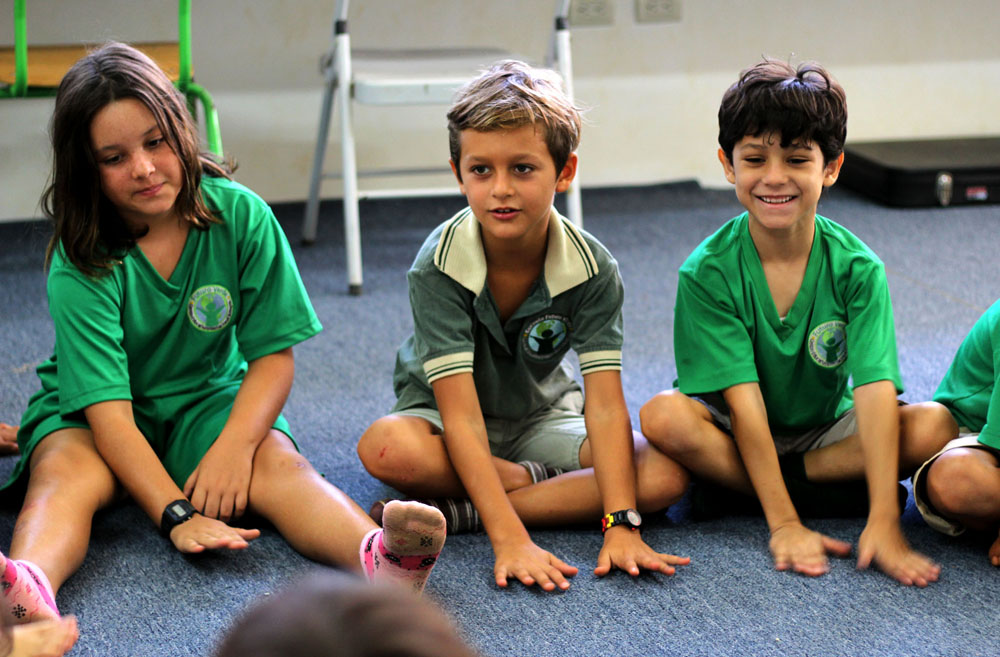
by Angie Briceño | Feb 21, 2019

2019 comes with many surprises, emotions and new faces!
This year we had 46 new students who will be accompanying us throughout their educational career, we wish them many successes and have a year full of adventures and learning here at Futuro Verde.
9 new students joined us while visiting Costa Rica, beautiful country they have decided to have an unforgettable educational and cultural experience, which is why they have been attending Futuro Verde and have participated during this month of all the activities in the classrooms.
We feel very fortunate to continue growing as an institution and we are very grateful with all of you who placed your trust in us with the education of your children. We are very happy to have more families visiting us and permanent families around the area, this year our students come from the United States, Canada, Argentina, England, France, Nicaragua, Germany and of course Costa Rica.
We wish all our students a successful year and we hope to keep growing together!
Big thank you to ALL Futuro Verde families!
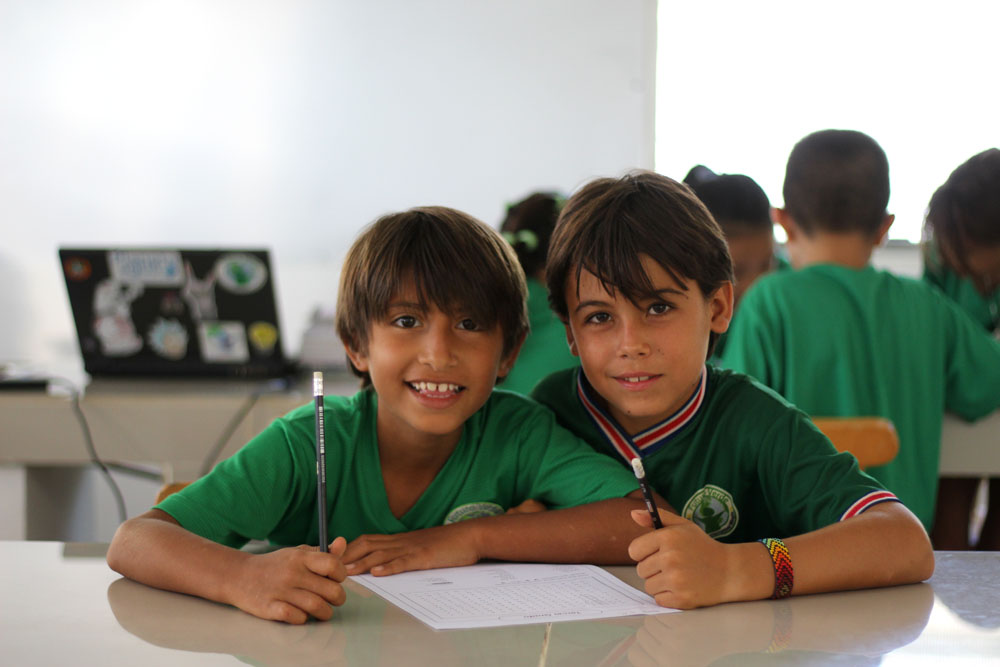
by David Brookshire, MPH/ School Counselor & Special Education Case Manager | Jan 20, 2019

With the excitement of beginning a new school year, transitions can also sometimes be challenging. Getting up earlier, going to bed earlier, new teachers, new experiences….while all positive things, can sometimes be a little bit stressful as we adapt. With new experiences and expectations on the horizon, it can be helpful to embrace some routines at home for added structure and peace of mind as we get ready for the new year. With a few basic practices, routines can help the whole family. A routine is simply a sequence of actions followed regularly that helps everyone know who should do what, when, in what order, and how often. The following are some examples of routines that can help everybody adjust to a new schedule.
To prepare for coming back to school, it is beneficial to begin waking up at a regular time each day. This helps our bodies establish a natural rhythm that makes it easier to adjust once the school year begins. By getting in the habit of waking up at a certain time, getting ready for the day, and eating breakfast, etc., we adapt to change with more ease and less stress.
Getting in the habit of what happens after school can also provide ease to the flow of the afternoon. Having a snack, doing some homework, or finishing chores are all examples of ways to establish structure in the afternoon.
By having dinner together as a family, we strengthen family relationships and provide a space for bonding. Also, with a regular bedtime and set of tasks for getting ready for bed, it’s easy to know what to expect and can provide cues for a body and brain that it’s time to begin resting. Practicing this regularly makes it easier to avoid stress and conflict when we begin a new school schedule. Getting enough sleep becomes a priority so we can be our best during the day.
Routines can provide a lot of benefits for children and adults. One of the most relevant benefits of routines is the creation of safety and predictability. An organized schedule provides children with a sense of safety because it is easy to know what to expect. The predictability of routines reduces stress and takes the guesswork out of getting ready because children regularly know what to expect. When children know what is expected and practice it regularly a sense of responsibility is gained that can boost confidence and make it easier for them to take safe, healthy risks as they face daily challenges. A sense of responsibility is an excellent benefit of establishing predictable routines. And finally, by establishing regular routines and making them a habit, we save time and allow space in our schedule for other activities.
When routines are established and practiced regularly we, as parents, feel good about providing our kids with a sense of accomplishment and responsibility. We save time, avoid conflict, and strengthen family bonds. This helps all of us make the transition as we enter the new year.
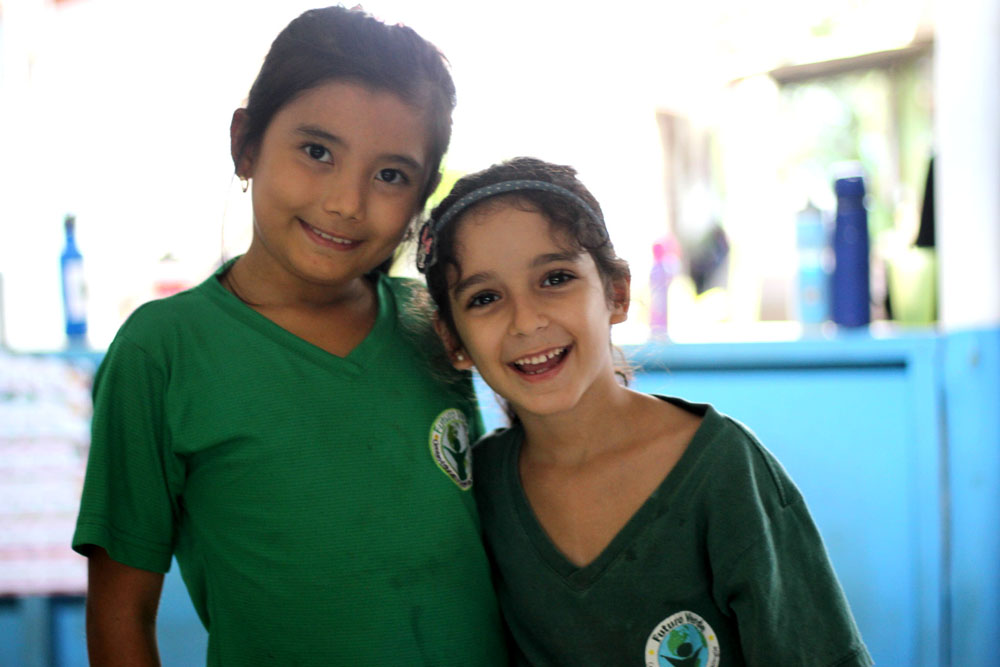
by Lural Ramirez | Jan 18, 2019

Welcome to the 2019 school year! On behalf of the Futuro Verde board of directors, our amazing team of teachers, our dedicated leadership team and our incredible support and auxiliary staff we welcome you to this new school year and thank you for joining us on this educational journey at our loving, IB World School!
Below you will find important details as you help your student(s) have the best beginning of the year possible!
School Supply Lists: Click the link below for access to our 2019 school supply lists! Thank you for fulfilling your child’s full supply list!
Supply List
Uniform policy: Please find below our school uniform policy, which has no changes from last year to this year. Uniforms are in stock and for sale at the school office. A reminder that uniform shirts have a cost of: ₡8,000 and PE uniforms (shirt and shorts) have a cost of: ₡12,500
2019 FV Uniform
2019 Student/Parent Handbook: Click the link below to read our updated 2019 school handbook! There are important policies in the handbook regarding topics including absences, curriculum, discipline policies and more. Please assure you read the handbook in full and review it with your child. Thank you!
School Handbook 2019
Get involved!: We are starting a formal FV Parent’s Commission for the first time this year! Are you a parent interested in becoming more involved with the school? Do you love helping with school events and fundraisers? Are you interested in helping make fun and exciting things happen at Futuro Verde? Well, then our FV Parent’s Commission might be just the group for you! Click on the link below to indicate your interest to get involved and our FV Parent’s Commission organizers will be in touch!
FV Parents Commission
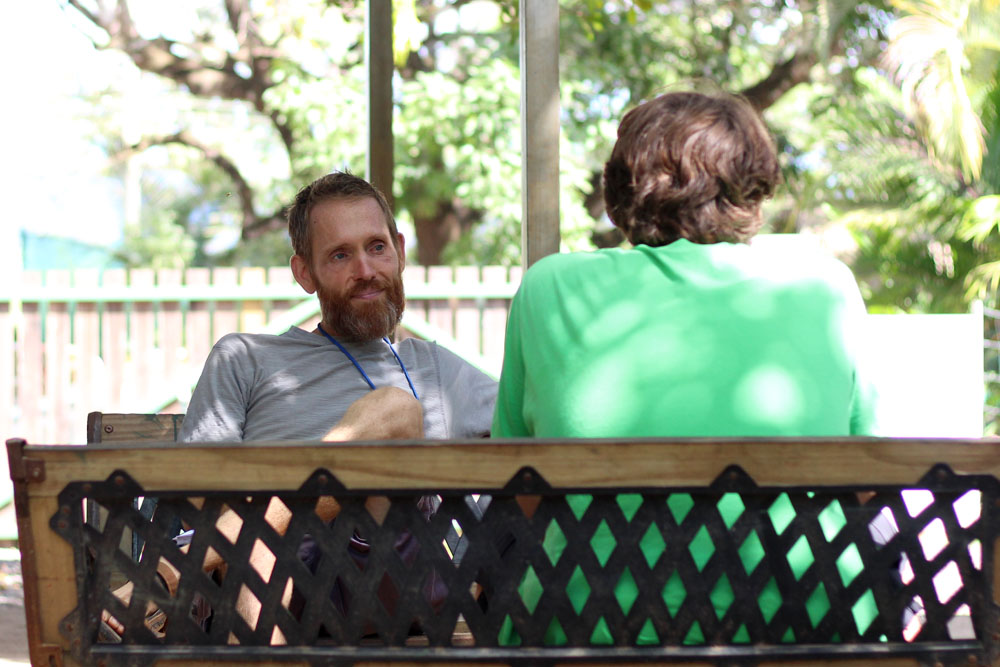
by David Brookshire, MPH/ School Counselor & Special Education Case Manager | Nov 18, 2018

With a holistic approach to learning and growth, it’s often important to support the emotional needs of children as they go through different ages and stages of life. At Futuro Verde we emphasize character education, social emotional learning, and access to counseling as ways to support the unique needs of every student. This allows every student to acquire emotional intelligence in addition to academic skills. As a result of this approach, students become self-aware individuals able to make responsible decisions, resolve conflicts, and manage their emotions.
Sometimes, as problems arise, children may need additional support as they tackle some of life’s challenges. This is where counseling can be very beneficial. Building a rapport with a neutral counselor, can allow children to open up about what’s troubling them. Through conversation and activities, this can help them identify and express emotions as they broaden their perspective through confiding in a counselor. This is very helpful in reducing stress, increasing self esteem, and building healthy relationships.
There are also ways for parents to support social emotional learning and growth at home. Being a good listener, for example, is an easy way to build this core competency in our children. This helps them become good listeners themselves, especially when it is modeled for them. Modeling is an excellent way to support emotional development because our choices and actions have a huge impact on our children. Be conscious about what values you hold as a family and carefully making choices aligned with those values is an excellent way to reinforce learning. Nurturing self esteem, giving age appropriate choices, and showing appreciation are also excellent ways to develop character at home.
Whether at home, through character education and social emotional learning our with the help of a counselor, it takes a village as we support every child as they learn and develop. Challenges are inevitable but with healthy coping skills, self esteem, and additional support when needed, our students are becoming self-aware, resilient individuals as they continue to learn how to engage with those around them in meaningful ways.
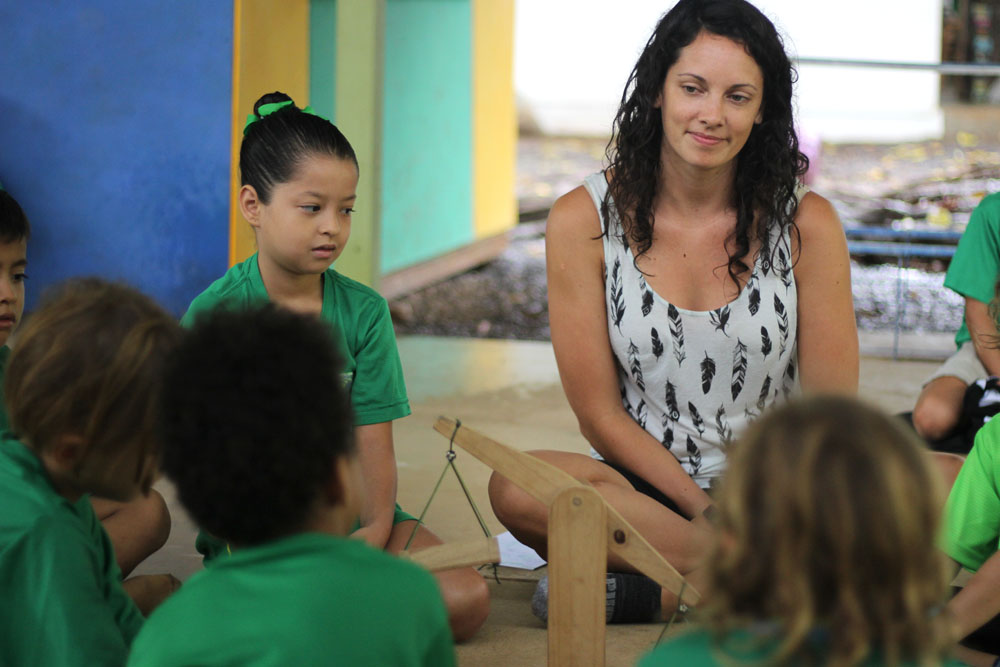
by David Brookshire, MPH/ School Counselor & Special Education Case Manager | Oct 9, 2018

There’s often a debate among parents about which approach is better, permissive parenting or authoritarian parenting. Authoritarians have little tolerance for misbehavior and are considered to be very strict. At the other end of the continuum, permissive parents set very few limits and tend to have more of relaxed approach where anything goes. While both types of parents have the best of intentions for their children, the question often arises, “Which is correct?” When we look at the science, we realize that a balanced approach is most effective if we aim to raise children who become compassionate, responsible, empathetic adults. This means we need to find a balance between permissiveness and setting strict limits and boundaries.
Limits and boundaries are important at every age and stage of childhood and adolescence. A helpful way to think about this is in terms of executive functioning. Executive functioning skills include things like: impulse control, self awareness, emotional control, self management, planning, and organization. These are all skills that successful adults utilize on a daily basis to navigate the world. Interestingly, these skills, performed largely by the prefrontal cortex in our brain, aren’t fully developed until our early 20’s. This is because this area of the brain continues to grow and mature until young adulthood. In the meantime, we can help our children develop these skills by setting appropriate boundaries and limitations.
As toddlers, it’s clear early on that children prefer immediate gratification. If there is something they want, they prefer it now. While this can sometimes be appropriate, often life requires us to wait. If we can learn, when appropriate, to delay gratification, we are enhancing our skills related to impulse control and self management. This, according to research, helps us learn self control and frustration tolerance and even reduces the chances of addiction later in life. These are valuable skills. As children get older and become adolescents, impulse control can be a challenge as teenage brains continue to change and develop. But, if kids have had practice when they are younger, this period of life will be easier for both the child and the parent.
While the specific limits and boundaries change depending on the stage of a child’s life, the concept remains the same. Sometimes as parents, our role is to help our children make decisions and learn how to control their emotions even when this is difficult. We can do this by following through with our expectations and being empathetic. If we want our preschooler to respect others, and they are hurting a friend, we teach them to stop and we teach them to consider how others’ feel. If boundaries are pushed and we are ignored, it would be appropriate to take space, or leave the area until the child is ready to come back and try again. Even if the child is unhappy in the moment because they aren’t getting what they want, eventually they learn social skills and self control. The same can be true for teenagers. Sure we may want to spend hours on electronics, or go hang out with friends but sometimes responsibilities come first. In the long run, as they become kind, empathetic, responsible people who monitor their own choices and consider others around us, they will thank us.

by David Brookshire, MPH/ School Counselor & Special Education Case Manager | Aug 30, 2018

Empathy is a complex skill that involves understanding another person’s perspective and responding appropriately. This skill grows to become the foundation of how we learn to interact with others in an effective way and can determine the quality of relationships we build throughout our lives. Needless to say, it’s important. We all want our children to grow up as caring, considerate, and understanding human beings. So, how can we help them become this? Here are a few tips for developing caring and empathetic children:
1. Model:
One of the best ways for children to learn anything is through modeling. Quite simply, when they observe someone modeling a particular behavior, they are much more likely to learn and repeat that behavior. Parents can model empathy by verbalizing their understandings of others’ feelings in various situations. For example, if your child is crying, you can say, “I see that you are crying. It seems like you are sad. Are you sad? I know it’s hard sometimes.” These few short sentences validate the child’s perspective and verbalize the connections between their thoughts, feelings, and behavior. Providing them an experience where someone shows them empathy helps them build those pathways in the brain. This is important to do for them and can also be demonstrated in situations involving others’ feelings.
2. Make connections through observation:
In any public or family situation, you can point out situations where a person is behaving in a certain way and ask your child if they have any guesses for why they might be doing what they are doing. For example, “Why do you think that man is yelling?” If he or she doesn’t know you can discuss different possibilities and connect it with how we act when we are feeling a certain way. Another way to practice this type of perspective taking is to apply this to any conflict the child might have. For example, if she hits her brother, you can ask her how she thinks her brother feels when she hits him. A follow up question would be, “How do you feel when your brother hits you?” This type of dialogue is great for empathetic brain development and a great way to practice the Golden Rule (Treat others the way you would like to be treated.). Practicing this type of perspective taking at home, in public, and even through literature by discussing the characters, can be a great way to make connections through observation in order to develop empathy skills.
3. Listening and vulnerability:
Through interactions, we learn and practice empathy. One of the best ways to do this is by being a good listener. Allowing others to fully express their perspective naturally helps us to understand this perspective. This, of course, requires us to express our perspective appropriately when it is our turn to do so. This requires vulnerability and honesty as we express how we are feeling. This is one of the best ways we can model and practice empathy with our children.
4. Unplug:
If building empathy skills requires interaction with others, it is absolutely essential that we limit electronic screen time for ourselves and our children. If most of our free time is spent staring at our respective screens, this obviously reduces that amount of time we are interacting with others. This is only the tip of the iceberg, however. Studies show that too much time on electronics for developing brains can cause such problems as irritability, insomnia, poor social skills, poor memory, difficulty focusing, poor eye contact, impulse control, and disorganized behavior. Dr. Victoria Dunckley explains in her book, Reset Your Child’s Brain, that a child’s brain that is overly engaged in electronic screen time creates imbalances in the brain by providing too much activity in the reward centers and too little activity in regions associated with empathy. By substituting screen time for family game time, a leisurely walk, conversation, or other activities, you can have a major impact in building connection, modeling social interaction, and strengthening brain development.
By incorporating these strategies, you are well on your way to developing caring and empathetic children.









